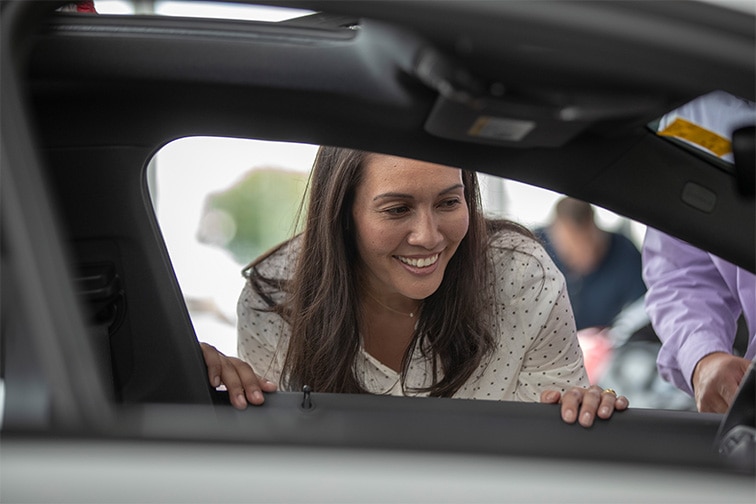Should I Buy Certified Pre-Owned?
Each solution to car-buying has its pros and cons.
 Capital One
Capital One
If you’re attracted to the benefits of new-vehicle ownership, but at the same time you want to save money by choosing a used car, a factory-backed Certified Pre-Owned (CPO) vehicle might be perfect for you.
Advantages of buying a CPO:
- Typically costs less than the same vehicle when new
- Includes vehicle history report, multi-point inspection, and reconditioning to make it as close to “new” as possible
- Frequently offered with extra warranty coverage that extends the original warranty time and mileage period
- They are usually a few months to a few years old, so they often have up-to-date safety and infotainment technologies
- Automakers frequently offer low-APR financing on their CPO vehicles
Disadvantages of buying a CPO:
- The peace of mind that comes with a CPO vehicle costs a premium over the same vehicle not in a CPO program
- CPO vehicles are sometimes dealership loaners or former rental cars treated indifferently by many different drivers
If you think getting a used vehicle is the right way forward, buying a CPO is a way to reduce your risk. CPO vehicles are reconditioned used cars that meet specific cosmetic and mechanical quality standards set by the automaker who originally sold the vehicle. Because they meet these standards, the automaker is willing to extend the original warranty on CPO vehicles.
In exchange for this added peace of mind, a CPO vehicle typically costs more than a used vehicle that isn’t certified by the car company. At the same time, they also typically cost less than a new example of the same make and model.
Surprisingly, though, a CPO vehicle might actually cost more than a new vehicle. This is due to periodic big rebates, generous dealer incentives, and low-APR financing on new vehicles. Before choosing a CPO vehicle, be sure to compare it to the deals available for new examples of the same make and model.
Also, it is important to note that CPO programs providing certification through the automaker are different from CPO programs provided by a third-party company. If you want to buy a used Honda certified by Honda, you’ll need to buy it at a Honda dealership.
Positioned between new and used cars, CPO vehicles can offer the best of both worlds. They almost always cost less than the same vehicle when new, yet they include many of the same perks associated with new-car ownership, such as a factory-backed warranty and attractive financing interest rates. Automakers also typically certify only the cleanest used cars that are in the best physical and mechanical condition, making CPO vehicles as close to buying a “new” car as possible.
If you think a CPO vehicle is the perfect compromise offering the greatest balance of risk and reward, you need to keep these three takeaways in mind:
- Not all CPO programs are created equally. You want a factory-backed CPO vehicle, not one that has been through a certification process by a third-party provider. If you’re considering a CPO Honda that is for sale at a Chevrolet dealership, this is less desirable than a CPO Honda that is for sale at a Honda dealership.
- A CPO vehicle could be priced higher than the same vehicle new, after factoring in all cash rebates, dealership incentives, and low-rate financing offers on the new vehicle. This is a rare occurrence, but if you’re considering a nearly-new CPO vehicle, be sure to perform a cost comparison to make sure the CPO model will actually save you money.
- Know that many CPO vehicles are former rental cars or vehicles that served as courtesy service loaners. If this doesn’t sit well with you, determine the CPO car’s ownership history if possible.
Written by humans.
Edited by humans.
 Christian Wardlaw
Christian WardlawChris says his first word was "car." For as long as he can remember, he's been obsessed with them. The design. The engineering. The performance. And the purpose. He is a car enthusiast who loves to drive, but is most passionate about the cars, trucks, and SUVs that people actually buy. He began his career as the editor-in-chief of Edmunds.com in the 1990s, and for more than 30 years has created automotive content for CarGurus, J.D. Power, Kelley Blue Book, the New York Daily News, and others. Chris owns Speedy Daddy Media, has been contributing to Capital One Auto Navigator since 2019, and lives in California with his wife, kids, dog, and 2004 Mazdaspeed Miata.
Related articles
View more related articles